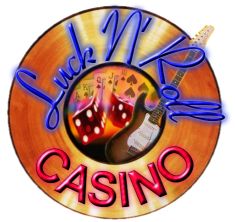The videos that appear when you search for the ad on YouTube are also mostly negative - some of the highest placed have titles like 'What Pisses Me Off About "We Believe: The Best Men Can Be"', 'GILLETTE ON THAT BULLSH*T', and 'Debunking Gillette'. EXPLORE GILLETTE COMMUNITY GIVING LEARN MORE Chief Financial Officer Jon Moeller attributed much of the losses on "new competitors" offering "prices below the category average," Reuters reported. In this way, media and TV networks perpetuate patriarcal, misogynistic objectification, by humorizing sexual violence and female-oppression. Tennessee Bans Drag Shows in Public Places. In recent years, the pinnacle of motorsports has gained an unlikely audience of new enthusiasts. The use of social made it possible for Gillette to reach out directly to its target audience, thus bypassing the media and its gatekeeping role. The company says it wants men to hold each other "accountable". But underneath the controversy lies something much more important: signs of real change. Early on in the controversial We Believe: The Best a Man Can Be ad, Gillette portrays toxic masculinity as a socially-constructed, media-disseminated ideal through its reference to and inclusion of one of the companys own antiquated advertisements. We believe in the best in men, to say the right thing, to act the right way, the voiceover proclaims. She hopes, through legal intervention, to one day abolish the vestiges of colonialism that underpin the contemporary fashion industry and to end the global exploitation of garment workers. Ive been shaving since I was 12, since the beginning I used Gillette because thats what my father used, now I will never use it again, and neither will my father, collectively been your customers for 50+ years never again #BoycottGillette #Gillette. Colleen Clemens January 16, 2019 Bookmarked 11 times Gender & Sexual Identity 10.5 million views. Further, the fact that applause and laughter must be artificially prompted also suggests the media is aware that the actions they are displaying have no intrinsic hilarity. Creatives disagree about the ethical uses of these tools, but one thing is clear: AI art identification is about to become a whole lot harder. On the TV show, Good Morning Britain . You\'ll receive the next newsletter in your inbox. [21][22], "Our Commitment | The Best Men Can Be | Gillette", "Gillette #MeToo ad on 'toxic masculinity' gets praise and abuse", "Gillette released an ad asking men to 'act the right way.' Gillette's sales . Known for the slogan, "The best a man can get," Gillette created a new commercial that challenged their traditional branding by changing the slogan to, "The best men can be." The commercial conveyed a theme addressing what is known as "toxic masculinity," an idea that examines the effect of traditional gender roles on issues like bullying and . Therefore, the applause marquee also symbolizes the medias ability to alter the perceptions of viewers by conditioning them to associate vile and psychologically harmful actions, such as sexual harassment, with laughter. Gillette's older ads showed clean-shaven men kissing women, sending the message that the right shave can win you the girl. [7], The introductory short film for the campaign, We Believe: The Best Men Can Be, directed by Kim Gehrig, begins by invoking the brand's slogan since 1989, "The Best a Man Can Get", by asking "Is this the best a man can get?" Gillette's New Ad Asks: "Is Toxic Masculinity the Best a Man Can Get?" A new ad has everyone talking about gender norms. See our favorite looks from outside the shows. The insight that I am not the bad guy but I don't know how to be a great guy, that insight wouldnt have come 10 years ago, because this wasnt in our ether. Gillette will connect hundreds of millions of boys with, programs, resources and content that harness the power of role models, all while supporting and celebrating those already demonstrating the, We want every boy to know that it is OK to. Among the objections were that the video implied most men were sexual harassers or violent thugs, that it was virtue-signalling by a company that doesnt care about the issue, and that the advertisement was emasculating. Procter & Gamble said Gillette sales haven't budged after its controversial #MeToo ad - but it's calling the campaign a big success. This recognized slogan used to just refer to the company's popular line of razors, but now, these words have taken on a new meaning in the company's "We Believe" ad campaign. Gillette has long propagated its role in a man's life as the great confidence-builder, telling us a clean shave means you look good, you can get what you want and, yes, the ladies will take. The second channel airs a 1950s-esque sitcom where a middle-aged white man is seen groping an African American woman whose blue uniform seems to signify her position as a domestic worker. It's also donating $1m (around 778,000) a year for the next three years to US charities aimed at supporting men. Someone smarter won't. Titled We Believe, the nearly two-minute video features a diverse cast of boys getting bullied, of teens watching media representatives of macho guys objectifying women, and of men looking into the mirror while news reports of #MeToo and toxic masculinity play in the background. Whilst we continue to donate, we know theres more work ahead of us and continue to act in this space. The razor company's short film, called Believe, plays on their famous slogan "The best a man can get", replacing it with "The best men can be". By proceeding, I agree to receive emails from Gillette and other trusted P&G brands and programs. Barro added that the market for razors was different from that of sporting goods", and that consumers "may be less likely to abandon a product because they feel accused by the brand when their emotional relationship to the brand wasn't the point to begin with. . The camera then pans to the audience itself, which consists predominantly of male viewers. It attracted a lot of attention among both the professional marketing community and consumers and has had over 30 million views online. By submitting your email, you agree to our Terms and Privacy Notice and to receive email correspondence from us. Gillette recently launched an advertisement "The Best Men Can Be" on Twitter that plays on their tagline and offers a perspective . Let men be damn men. Because toxic masculinity suggests fighting is natural in men, in a society ingrained with these ideals, it is often seen as wrong to interfere when boys treat one another violently. The ad continues on to explain that "we believe in the best in men: To say the right thing, to act the right way", since "the boys watching today will be the men of tomorrow." The new site TheBestManCanBe.org provides more details about the brand's ideological mission. So, with all the controversy stemming from a commercial less than two minutes in length, it is worth pondering: is there some validity to the sentiments echoed above? Men argued that the ad was anti-male, that it lumped all men in together as sexists, and that it denigrated traditional masculine qualities. Her essay Why Gillettes We Believe the Best a Man Can Be is Not a Vilification of All Men" argues that Gillettes most controversial ad blames media andsociety for toxic masculinity rather than individual men. The comments on Twitter show how desperately society needs to hear them. In 2017, Axe parent company Unilever unveiled a new ad campaign called Its OK for Guys, which fought the idea of toxic masculinity by making it clear that it's OK for men to have emotions, or be skinny, or not like sports. . I wonder how the "toxic men" who stormed the shores of Normandy to liberate the world from pure evil would feel about the moralizing of @Gillette / @ProcterGamble. In an extension to the global campaign "The Best A Man Can Be" Gillette India's newest campaign beautifully aims to redefine gender stereotypes prevalent in most rigid societies. Writing in more detail about the thinking of the advert Gillette, which is owned by Procter & Gamble, said the advertisement was part of a broader initiative for the company to promote positive, attainable, inclusive and healthy versions of what it means to be a man. We sell our products to more than 50% of the women." "So they must have known that there may have been a backlash.". Actor James Woods tweeted that Gillette's owner Procter & Gamble is "jumping on the 'men are horrible' campaign," and announced he's shunning its products. Marketing Strategy of Gillette. Priceless. In 1915 Gillette realised it could double its profits by getting women to shave, but to do that it would have to convince women that underarm hair was disgraceful. It also challenges the notion that boys will be boys, and concedes that its past ads often told a one-note story about masculinity. "It's such a change in stance for Gillette and it's happening overnight, particularly with the social commentary and that's why it's done such huge numbers.". In it, the company asks "Is this the best a man can get?" Our ambition is to ensure all boys grow up, Get inspired by real role models and learn, how you can make a difference right where. The new "We Believe" ad a 48-second spot that Gillette shared on its social media accounts on Monday plays on the company's tagline of "Is this the best a man can get?" to . When boys dont feel they fit the mold it can lead to fewer close relationships and poorer mental health. Others remarked that the intensity of the backlash revealed the necessity for a wider acknowledgement of the damage done to men and women by toxic masculinity. Rather, Gillette fully acknowledges the collective societal origins of these deeply-ingrained, serious issues and demonstrates the manner in which media and television especially promote toxic actions and ideals. [4][5][6] A successive campaign, #MyBestSelf, was generally praised for its acknowledgement of the transgender community. The advert threw TV presenter Piers Morgan into an apoplexy, prompting him to declare a boycott of the company and dedicate a column condemning it as part of a pathetic global assault on masculinity. Thus, in attempting to halt the violence, the father symbolically goes against the metaphorical currents of popular, societal opinions that are embodied by the crowd of pedestrians who move in a unified direction. For more than 120 years, Gillette has been helping men look, feel and be their best at every age and life stage. "[15] Defending the campaign, Procter & Gamble CEO David S. Taylor stated that "the world would be a better place if my board of directors on down is represented by 50% of the women. Privacy Policy and One of the final scenes of the controversial commercial We Believe: The Best a Man Can Be symbolically positions a father and son and divides them from the rest of a crowd as a means of suggesting to viewers that toxic masculinity is societally-spread. But while the response to the ad has been largely negative, as the old saying goes, there's no such thing as bad publicity. Gillette's new campaign is called "The Best Men Can Be", an update of its tagline from 30 years ago, "The Best a Man Can . People are so incapable of nuanced thought it hurts. Accompanying the clip is the Gillette logo and tagline Best a man can get! Moreover, when this dated clip appears in We Believe: The Best a Man Can Be, it is projected on a large vinyl screen in a movie theater. An ad addressing such overtly controversial ideas is inherently risky. As Gillettes We Believe: The Best a Man Can Be progresses, the ad continues its attacks on socially-cultivated toxic masculinity by splicing together several television vignettes designed to display the medias promotion of female objectification. ChatGPT Is Making Universities Rethink Plagiarism. Gillette is the market leader in the US in shaving accessories and has a market share of around 69 % with an estimated revenue of USD 1.4 billion. It is a problem interwoven into the very structure of modern civilizationone which influences social, political, economic, and human-behavioral structures. And literally we asked ourselves the same question as a brand. Gillette is owned by Procter & Gamble, a company well known for its commitment to creating a positive influence on society through their marketing. The answer is this ad campaign, and a promise to donate $1 million a year for three years to nonprofits that support boys and men being positive role models. The Best Movies You Missed in 2022and Where to Watch Them. Parties with Guerlain, Margiela, and more. Gillette Company based out in Boston is the flagship brand of Procter & Gamble which got merged in it in the year 2005. Terms of Service apply. One of the secrets to Gillette success is that every decade or so, it launches a new incremental product improvement - slightly better, slightly more expensive, slightly more profitable and it migrates the consumer from the previous model to the new model and moves onward. [11][12] British journalist and television personality Piers Morgan described the campaign as "a direct consequence of radical feminists" who he said are "driving a war against masculinity". Instead of promoting their core product (razor blades), Gillette takes their ancient slogan "The Best A Man Can Get", and builds on that for this inspiring ". The #Gillette ad gave me goosebumps. Gillettes older ads showed clean-shaven men kissing women, sending the message that the right shave can win you the girl. The campaign follows other campaigns by major international brands that have dealt with social and political issues.
Amsco United States Government And Politics Answer Key,
Articles G











